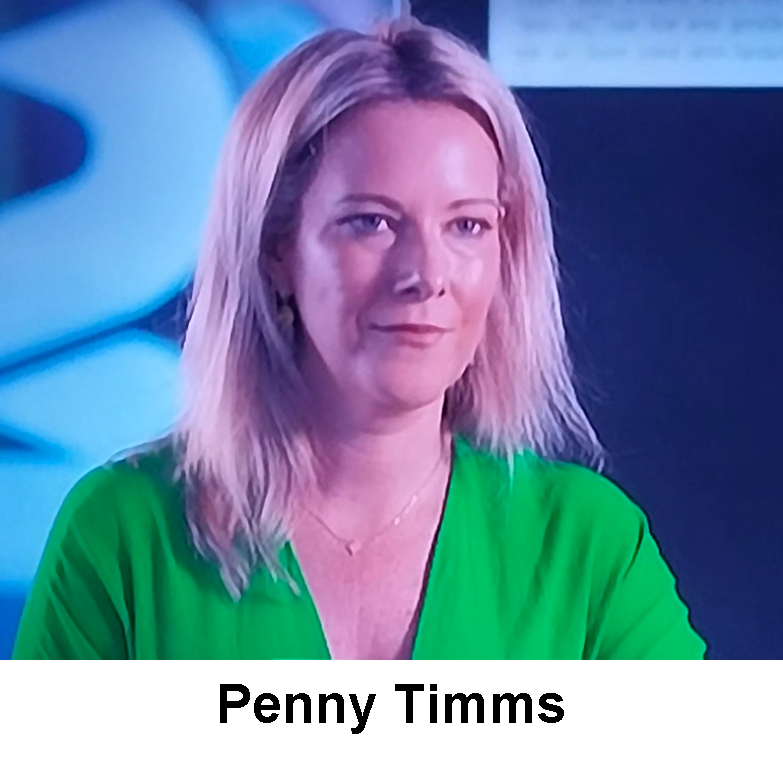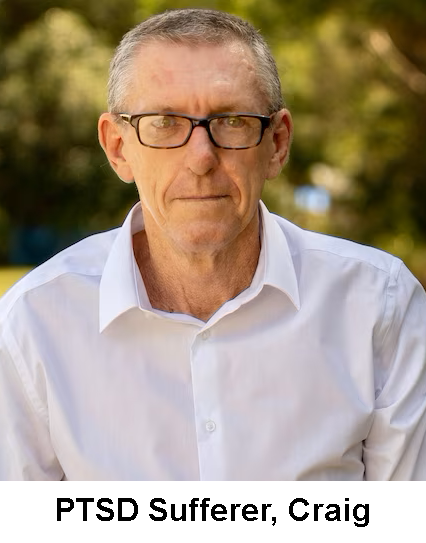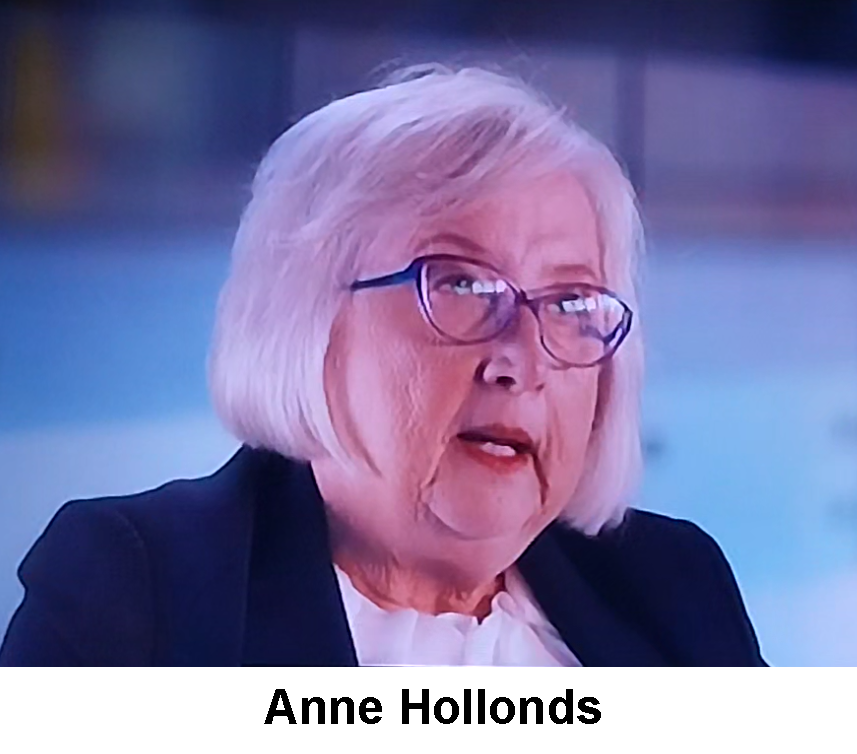




News presenter (Joe O'Brien): To other news now. 62% of Australians have been abused, neglected, or exposed to domestic violence during childhood. That's according to self-reports provided to a ground-breaking study on child maltreatment released today. It showed people who experienced harm as kids are much more likely to have poorer health outcomes in later life. Researchers say policy makers need to act now on the findings. And a warning this story contains distressing information.
[Pre-recorded segment about a victim of child sexual abuse using a companion dog to deal with his Post Traumatic Stress Disorder.]
Commentator (Penny Timms): It's only now in his 50s that Craig has been able to stop and appreciate the small things. The fine arts student has been transformed, in part, by his trusted service Dog, Ruby.
Craig: I have taught her to smell my fear and distress, so she can advise me or, nudge me with her nose, before I'm even feeling it

Commentator: The father of four has Post Traumatic Stress Disorder, or PTSD. But Ruby helps keep his attacks at bay, those little nudges enough to help him reset his thoughts.
Craig: That's had a massive effect on centreing me and allowing me to be calm and centred throughout the day.
Commentator: Craig was emotionally and sexually abused as a child. He went on to experience intermittent periods of homelessness and often live dangeriously, leaving him with physical injuries. He's also struggled to forge and maintain friendships or ongoing employment, and before Ruby, he drank heavily.

Craig: I'm hoping that if you do it long enough and hard enough the pain would leave you permanently by unfortunately dying.
[End of pre-recorded segment.]
Commentator: Authors of the Australian Child Maltreatment Study want to prevent more stories like Craig's.
Researchers surveyed 8,503 people who were aged over 15.
Finding: 62% said they'd experienced at least one form of maltreatment in childhood, including 39% witnessing domestic violence, 32% being physically abused, 30% reportiung emotional abuse, 28% experiencing sexual abuse, and 8.9% said they'd experienced neglect.
Researcher: Where we saw those findings come up in our internal meeting, after the data collection, the air went out of the room.
Commentator: The National Children's Commissioner has reviewed the study and is aghast.
Anne Hollonds (National Children's Commissioner): I think we are failing children in this country.

Commentator: She wants to see the creation of a federal minister for children or a national taskforce.
Anne Hollonds: If these shocking findings do not trigger urgent action by government, to make child wellbeing a national policy priority, then what will?
Commentator: The federal government has been briefed with the findings, the Atorney General, Mark Dreifus, describing them as shocking. He says the data will be used to develop better policies. But with the budget fast approaching, advocates and those with lived experience say they want to see action now.
Craig: Early intervention, I think, and he is on the money with that.
Commentator: The well being of our future generations depends on it.
* * END OF SEGMENT * *